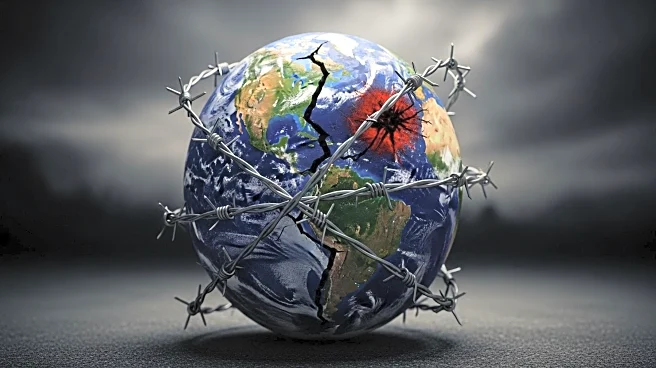What's Happening?
In Ecuador, protests have erupted in response to the government's removal of a fuel subsidy, which has led to increased diesel prices. The protests, organized by the country's largest Indigenous group, have resulted in a state of emergency being declared in 10 provinces. Demonstrators are demanding the reinstatement of the subsidy, citing the economic burden of higher fuel costs. The government has responded with a state of emergency, restricting freedom of assembly but allowing peaceful demonstrations. The situation remains tense, with both anti-government and pro-government rallies taking place in the capital, Quito.
Why It's Important?
The protests in Ecuador highlight the broader socio-economic challenges faced by the country, particularly in relation to fuel pricing and its impact on the cost of living. The government's decision to cut the subsidy has sparked significant unrest, reflecting the deep-seated economic grievances among the population. The situation also underscores the political tensions between the government and Indigenous groups, which could have long-term implications for social stability and governance in Ecuador. The international community is watching closely, as the outcome could influence regional dynamics and economic policies.











